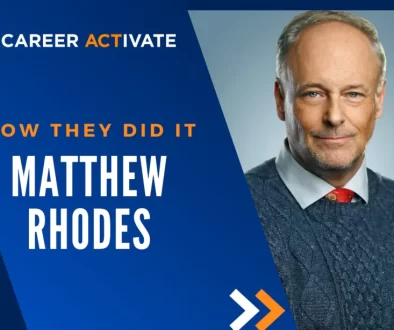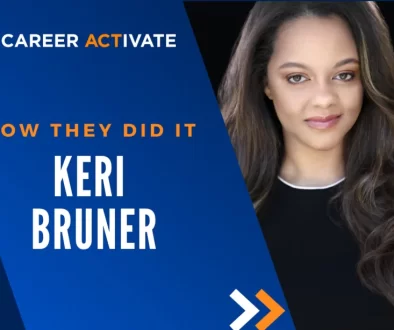Things I Wish I Knew Before I Got to Set
Things I Wish I Knew Before I Got to Set
You booked your first union theatrical job! Congrats! All those classes, marketing, and auditioning finally paid off. But hold up- here’s some helpful info so you know what to expect before your big shoot day (or days!).

The Table Read
Some shows will make you do one. People from the studio and network will likely be there. Show up to do your best work, be cordial to everyone you meet, and exude the positive energy that comes with being in a room with other creatives to make stuff. You’ve got the offer, but it’s not in the bag yet. Although it’s highly unusual, actors can be fired from table reads, so make sure you bring your A-Game and are super prepared.
Fittings
These are appointments with the wardrobe team to figure out what you’ll be wearing. Your picture will be taken in a few different wardrobe options and sent to the director for the final decision. There will usually be a scheduled paid fitting a day or 2 before your shoot date, or possibly an hour or 2. Look out for the wardrobe stylists to contact you and keep your reps in the loop. You get an extra few bucks if you end up wearing your own wardrobe pieces, or if the fitting time runs over an hour.
Paperwork
You can plan on a few different forms or contracts to sign. Let me walk you through them…
I-9: Make sure to bring a copy of your passport OR drivers license AND social security card. If you don’t have those, google the full list of acceptable forms needed to fill out your I-9 on set.
W4: For union work, actors are considered employees and fill out a W4 for tax withholding. For non-union work, actors are contractors and fill out a W9.
Contract: This document will state how much you’ll be paid and all the other legal stuff such as terms of usage. It will also ask you for the address to mail your payment. Before you fill this out, discuss with your reps whether
1. They’d like you to send them a copy of the contract (usually cell phone photos are fine), and
2. Where they’d like the check mailed. Some reps want checks mailed from the production office straight to their office, where they’ll take their cut and mail you a separate check. Some reps don’t mind if the checks go to you first and you pay them their commission after.
What to expect on set based on the type of project you are working on…
Single Cams
Prepare for downtime between camera and lighting setups, where you can hang out by the food. One of the biggest perks of union jobs (IMO) is the catering.
Network, but be mindful
Don’t be afraid to approach the writers and producers- thank them and express that you’re excited to work with them!
Everyone is at the mercy of the network- it’s good just to be working on a show! I’ve found most people share a grateful attitude. But of course, be cognizant of everyone’s time! If a director is starting to cut shots to make her day, it’s probably not a good time to initiate small talk with her. But you’ll likely run into other actors or producers to chat with hanging out by craft services when the crew is setting up cameras and lighting for the next shot.
Once the shot is set up, there will likely be a few quick rehearsals to make sure all the actors know their marks and so the DP can nail down the camera movement while keeping you in focus.
If the director decides to go for another take, don’t assume it’s because you did something wrong. Often, it’s due to a sound issue or perhaps the camera didn’t track quickly enough or the actor landed 6 inches off their mark and the camera couldn’t refocus (in that case, it is your fault. Hit your mark).
The same scene will likely be shot from a few different angles, with multiple takes from each one.
Daytime TV
If you booked a daytime show, ignore everything I just said. There will likely not be multiple camera setups or much downtime between shots. Most scenes are done in 1-2 takes so don’t mess up your lines because you likely won’t get a second try.
Multi-Cams
There is generally a much more lax schedule with multi-cams. Instead of a few minutes to rehearse like in the single-cam world, multi-camera comedies give you a few whole days to rehearse! Expect shorter days and lots of downtime, while running through lines and blocking on the actual stage where you’ll be performing.
Multi-cams are performed in front of a live studio audience, with a professional hype-person to keep the audience energy up between shots. They’re the shows on TV with the laugh tracks.
When the live taping day arrives, some actors like to run lines quickly, just for words, before going out in front of the audience. For people with no theater background (like myself), this is called a speed-through. Just in case you hear anyone ask you to “do a speed-through.”
Prep Work
Acting is incredibly technical. And nowhere is this more evident than on a big budget production. It’s always good to get as much practice being on set as possible before your big break as a principle on a TV show!
Submit and audition for student films, director’s reels, spec commercials. Lower budget productions generally have less equipment, a smaller crew, and more budget-friendly snacks, but there’s also way less pressure. If you screw up royally, it’s hundreds of dollars on the line, not millions.
For multi-cams, you can’t be afraid of performing in front of lots of people live on stage! If this scares you (it terrifies me), get yourself up on stage wherever you can and practice.
Whether it’s performing in front of your acting class or signing up for a stand-up set, conquering those nerves will only help you at every step of your career!
As a general rule, try to be off-book before you get to set. BUT, that said, script changes can and do happen. Don’t be surprised if you’re handed line revisions while you’re sitting in hair and makeup or even in between takes, so be prepared to roll with the punches!
Some things can only be learned on set. But you’re now more well-prepared and well-informed to make a great impression and do your very best work once you’re there!-Coach MelodyPS. For more opportunities to book TV/film work and be on set more often, check out our free upcoming master class: Book TV/Film On Your OWN: 3 Insider Strategies.


